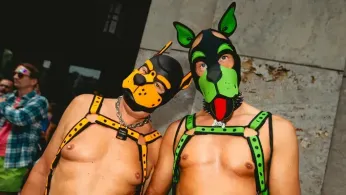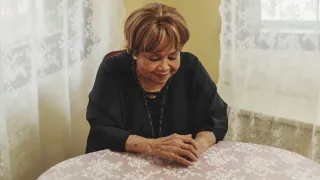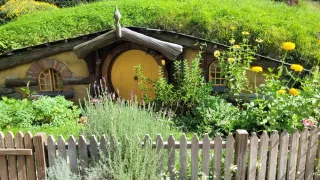
6 hours ago
Sniffing Out Joy: How Pup Play Is Unleashing New Queer Freedoms
READ TIME: 5 MIN.
If you’ve ever wandered into a queer bar on the right night, you might have spotted a pack of humans on all fours, tails wagging, nuzzling each other with infectious glee. No, this isn’t the latest drag trend—it’s human pup play, a kink-turned-cultural movement that’s barking its way into the heart of LGBTQ+ life. And in 2025, it feels more timely—and more joyful—than ever.
Pup play, also known as puppy play, originated as a branch of the leather and BDSM scene: a world where power dynamics, role play, and animalistic freedom run rampant (in the best possible way). Participants, known as “pups,” slip into a canine persona, donning gear—think hoods, collars, mitts, and tails—or sometimes nothing at all, and shed their human worries to embrace a simpler, more instinct-driven way of being. For many, the appeal is both liberating and deeply queer: an opportunity to bark, fetch, and play, free from the rigid expectations of society and even gender itself .
“Each puppy’s headspace is completely different than another’s, and that’s the beauty of it, too,” explains Rascal, a longtime Denver pup. “While you have the community at large, you also have these smaller groups who definitely come together and take care of each other and really foster headspace, the mentality of consent, exploration, body positivity, defying gender boundaries. They create a sense of belonging, and it doesn’t matter where you come from” .
For years, pup play was associated almost exclusively with gay men in leather bars. But as queer spaces diversify and kink culture becomes more visible, new voices and identities are barking into the conversation. Pistol, a Denver pup who identifies as a woman, remembers feeling out of place at early events: “Even myself, I thought that all pups were men, gay men, in the leather community, so when I was first introduced to it, whenever I started going to pup moshes, it was at a leather bar, and they weren’t super friendly, so I didn’t get to go as much as I’d liked to,” she recalls. “ I see it being a lot more friendly and open to other genders” .
Today, queer women, nonbinary folks, trans people, and pups of every stripe are claiming space in the pack. The appeal? Pup play is what you make it—sexual or not, dominant or submissive, rambunctious or reflective. Roles can shift: you might be an “alpha” one day, a playful “omega” the next, or simply a stray looking for a belly rub. As Hades, a Denver pup who discovered new facets of their own identity through pup play, puts it: “I wouldn’t have been able to explore those happy in-betweens if it weren’t for pup play” .
This fluidity resonates deeply with queer people, many of whom have spent a lifetime unlearning the binaries and boxes imposed by mainstream culture. In pup headspace, the rules melt away. Gender is optional. Hierarchies are flexible. Authenticity is everything.
The rise of pup play owes much to the internet, where platforms like Pupspace (pupspace.net) and Puppy Pride (puppypride.social) have nurtured global networks of pups, handlers, and allies . In cities like Denver, local groups host regular “moshes”—playful, gear-friendly gatherings where pups can romp, wrestle, and connect in person. These events, increasingly popping up in mainstream queer venues, offer a rare space where vulnerability and exuberance are celebrated in equal measure.
“It felt like, between the handlers and pups, everybody’s there for each other’s wellbeing,” says Pistol. “Just like if you were at a dog park—you’re petting all the dogs and giving them treats—it’s kind of the same situation; it gives you a way to meet people and have something in common. The pup energy is just awesome” .
These connections run deeper than kink alone. For many pups, the community offers a lifeline out of isolation, a place to practice consent, support, and radical self-love. In a world that can feel hostile or indifferent, the unconditional acceptance of the pack is a balm for the soul.
“In Denver, and many areas, there are pup, or pet, and handlers groups that run local events, socials, moshes, where people can go to these spaces and interact, and there’s a lot of online, social, chat groups, in which puppies can meet and engage with each other,” notes Hades. “There is a big sense of community, whether that’s online or through local groups” .
Pup play’s queer relevance isn’t just about who shows up to the mosh—it’s about what the practice represents. In a society that polices bodies, desires, and identities, the sight of grown adults joyfully embodying puppies is a radical act of self-determination. It’s a reminder that queer culture has always thrived on invention, mischief, and rewriting the rules.
“Pup play is whatever a person makes of it, and while it can be inherently sexual or not, loose or very rigid; it is an alternate form of expression and community. The headspace may push human burdens to the back burner, but pup play actually allows people to embrace more genuine interactions among one another,” writes Keegan M. Williams .
As the movement grows, pups are pushing for even greater inclusion: more events in non-male-dominated spaces, less focus on sexuality, and more opportunities for diverse voices to lead. Hades dreams of “pup events in less male-dominated spaces, or less sexualized spaces, and just be able to be a gateway to start expressing themselves, whether it’s finding out who they are as a person through kink or just finding other kinks through pup play” .
And the wider world is watching. As pup play edges into mainstream visibility, it challenges stereotypes—not just about kink, but about what queer community can be. “I definitely support breaking down the heteronormativity complex that a lot of heterosexual people have regarding kinks, polyamory, whatever it may be,” says Rascal. “I would like to see them enjoy this as a form of self expression just because that would help us to bridge some of the gaps between us, the LGBTQ community, and the heterosexual community. I think getting that exposure and education out there can definitely create a stronger foundation” .
In a world that often feels heavy, pup play offers a breath of fresh air—a chance to be silly, vulnerable, and free. It’s no wonder it’s resonating with a new generation of queer folks hungry for connection and authenticity. Whether you’re a handler, a pup, or just a curious bystander at the dog park, there’s room in the circle for you.
So next time you hear the joyful yelp of a pup at Pride, remember: underneath the hood, there’s a heart beating with pride, pleasure, and boundless queer possibility.






